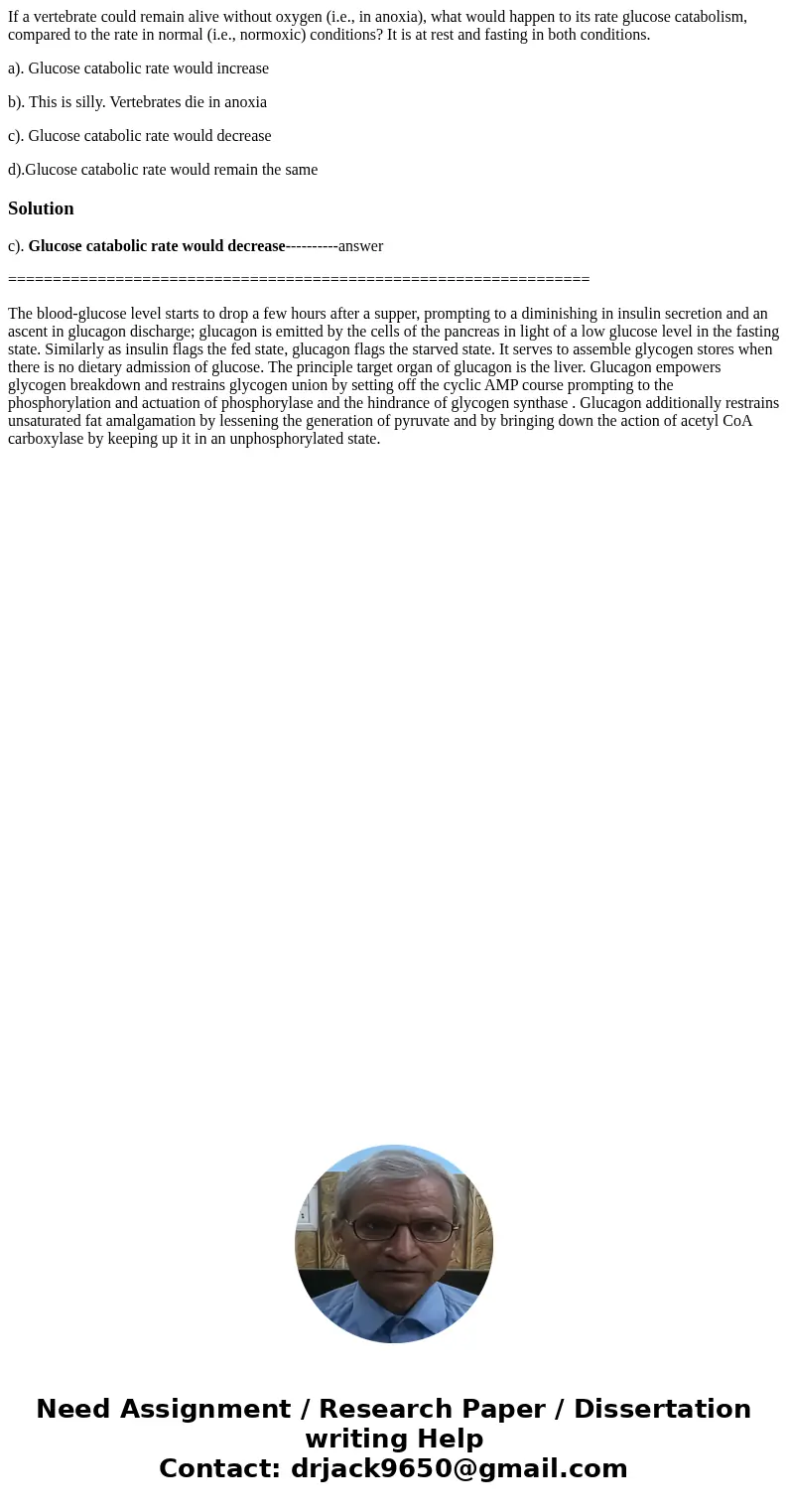If a vertebrate could remain alive without oxygen ie in anox
If a vertebrate could remain alive without oxygen (i.e., in anoxia), what would happen to its rate glucose catabolism, compared to the rate in normal (i.e., normoxic) conditions? It is at rest and fasting in both conditions.
a). Glucose catabolic rate would increase
b). This is silly. Vertebrates die in anoxia
c). Glucose catabolic rate would decrease
d).Glucose catabolic rate would remain the same
Solution
c). Glucose catabolic rate would decrease----------answer
=================================================================
The blood-glucose level starts to drop a few hours after a supper, prompting to a diminishing in insulin secretion and an ascent in glucagon discharge; glucagon is emitted by the cells of the pancreas in light of a low glucose level in the fasting state. Similarly as insulin flags the fed state, glucagon flags the starved state. It serves to assemble glycogen stores when there is no dietary admission of glucose. The principle target organ of glucagon is the liver. Glucagon empowers glycogen breakdown and restrains glycogen union by setting off the cyclic AMP course prompting to the phosphorylation and actuation of phosphorylase and the hindrance of glycogen synthase . Glucagon additionally restrains unsaturated fat amalgamation by lessening the generation of pyruvate and by bringing down the action of acetyl CoA carboxylase by keeping up it in an unphosphorylated state.

 Homework Sourse
Homework Sourse